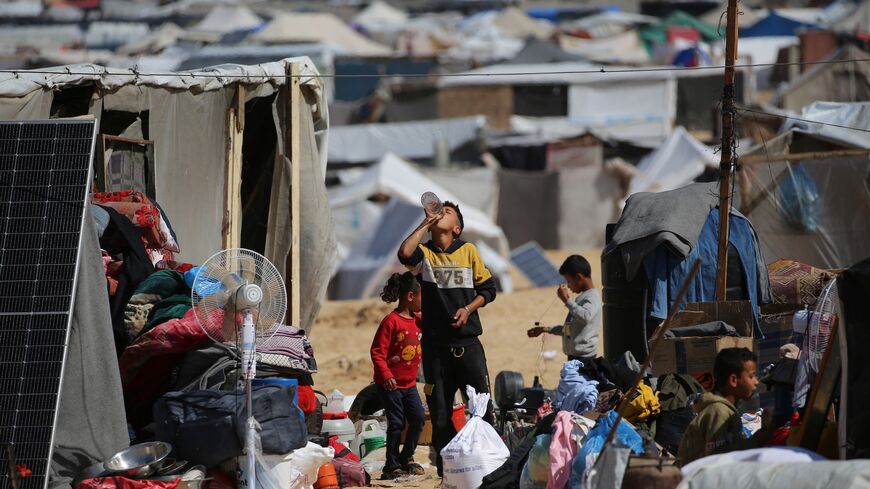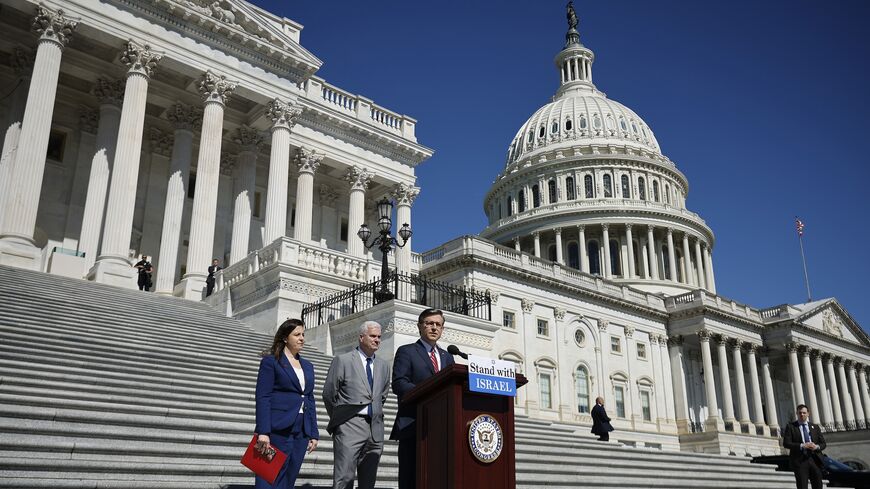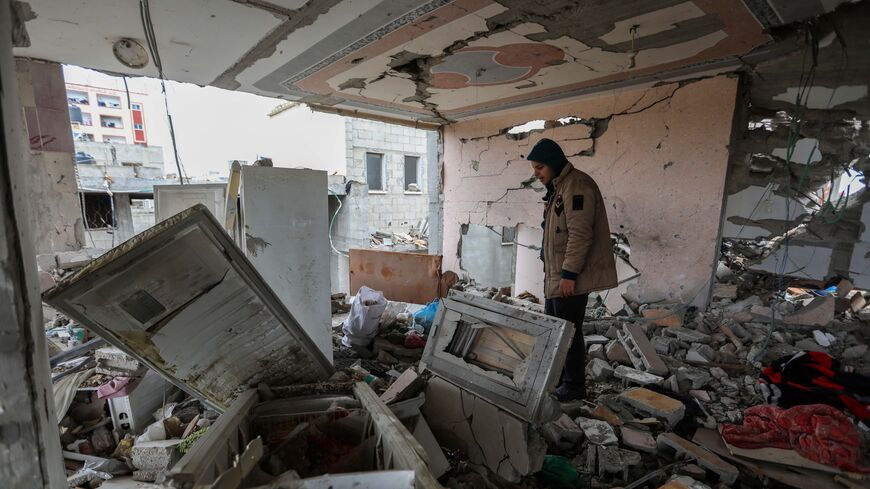US says Israel’s weapons use in Gaza likely 'inconsistent' with international law
A lack of complete information provided by Israel prevented the State Department from verifying whether US arms were “specifically used” in alleged violations.

WASHINGTON — A State Department report Friday on Israel’s military conduct in the Gaza Strip said it was “reasonable to assess” that US-provided weapons have been used in violation of international humanitarian law but that there was not sufficient evidence to support withholding military assistance.
Israel had not shared enough information to verify whether US arms were “specifically used” in alleged violations of international humanitarian or human rights law since Oct. 7, the report said.
"Limited information has been shared to date in response to [US government] inquiries regarding incidents under review to determine whether US munitions were used in incidents involving civilian harm," it said.
The highly anticipated report to Congress, which looked at possible violations through late April, nonetheless said it considered Israel’s assurances about its compliance with international humanitarian law to be “credible and reliable.”
It came to the same conclusion about the six other US arms recipients who are engaged in active armed conflict — Colombia, Iraq, Kenya, Nigeria, Somalia and Ukraine.
A senior State Department official describing the report said the nature of the conflict in Gaza made it difficult to assess individual incidents and noted that Israel has opened a number of criminal investigations into possible violations.
The first-of-its-kind report to lawmakers was required under a Feb. 8 directive issued by President Joe Biden, who was facing pressure from congressional Democrats concerned that US weaponry was contributing to the soaring death toll in Gaza.
The memorandum, known as NSM-20, also required a determination on whether Israel had arbitrarily denied or restricted the delivery of US humanitarian assistance.
“Since October 7, and particularly in the initial months, Israel did not fully cooperate with United States government efforts and United States government-supported international efforts to maximize humanitarian assistance flow to and distribution within Gaza,” the report said.
The State Department did not assess, however, that the Israeli government is intentionally obstructing aid access as defined by Section 620I of the Foreign Assistance Act, which bars US arms and security assistance from going to countries that restrict the delivery of US-backed humanitarian assistance.
The determination is likely to rankle those who say the Biden administration should be leveraging the pipeline of military aid to stem the bloodshed in Gaza.
The memorandum was modeled off of an amendment to the National Security Act proposed by Sen. Chris Van Hollen (D-Md.) earlier this year. In a briefing with reporters Friday evening, the Maryland Democrat said the report “fails to do the hard work of making an assessment.”
“The Biden administration is taking at face value many of the representations made by the Netanyahu government, but when there's clear, independent evidence to the contrary, they don't make that final conclusion,” Van Hollen said.
The report’s release also angered prominent Republicans, including Rep. Michael McCaul (R-Texas), chairman of the House Foreign Affairs Committee, who said the report served “no purpose other than to provide political cover to the president with his base."
Senator Jim Risch (R-Idaho), ranking member of the Senate Foreign Relations Committee, called it an attempt to "to placate voters on the far left at the expense of a close ally."
The State Department delivered its report days after Biden said he would withhold offensive weapons to Israel should it launch a major assault on Gaza’s southernmost city of Rafah. US officials have warned an Israeli ground invasion would cause massive casualties among the roughly 1.4 million Palestinians sheltering in the crowded city.
The Health Ministry in Gaza said Friday that nearly 35,000 people — most of them women and children — have died in the war that Israel launched in retaliation for the Hamas-led killing of about 1,200 people on Oct. 7. That number is expected to climb significantly during a full-scale offensive in Rafah, where Israel says four remaining Hamas battalions are ensconced.
For the first known time, the Biden administration paused a planned shipment to Israel of 2,000-pound and 500-pound bombs last week over concerns they would be used in Rafah.
Biden acknowledged in a CNN interview Wednesday that bombs provided by the United States have been used to kill Palestinian civilians. He has previously characterized Israel’s bombing of Gaza as “indiscriminate.”
Israel denies targeting civilians in the coastal enclave and says its military campaign is focused on eradicating Hamas.
The Biden administration has repeatedly said Israel should be doing more to minimize civilian harm and expand humanitarian aid access in Gaza, where the United Nations says "full-blown famine" is underway in the north.
In a letter to Biden last week, a group of 88 House Democrats said there was “sufficient evidence” to conclude that the continued supply of weapons to Israel violates the Foreign Assistance Act.
The lawmakers cited Israel’s resistance to opening land and sea routes into Gaza, its denial of planned humanitarian convoys and its “arbitrary restrictions” on goods entering the territory.
In addition to military support, the United States has used its veto several times since the war erupted to provide Israel with diplomatic cover at the United Nations. On Friday, it was among just nine countries, including Israel, to vote against a UN General Assembly resolution that called on the Security Council to “favorably” reconsider the Palestinian application for membership.
This story has been updated since its initial publication.







